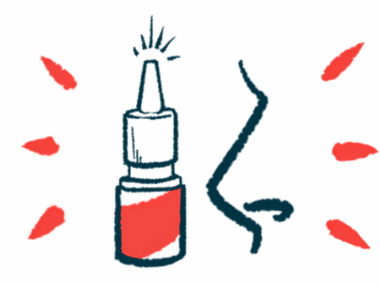BioVie’s Phase 2 Trial Fully Enrolled to Test Its Oral Therapy NE3107
Top-line data are expected to be available in December
Written by |

BioVie has completed enrollment for a Phase 2 clinical trial evaluating the safety and efficacy of its experimental oral therapy NE3107 in people with Parkinson’s disease.
“To date, we have seen no drug-related adverse events [side effects],” Cuong Do, BioVie’s president and CEO, said in a company press release.
“Additionally, we are detecting what we believe to be an efficacy signal among patients who have completed 28 days of treatment, and we look forward to having the full data from the trial to quantify the full therapeutic impact,” Do added.
Top-line results of the trial, called NM201 (NCT05083260), are expected to be available in December.
Neuroinflammation and insulin resistance — a condition in which cells no longer respond to the action of insulin, a hallmark of type 2 diabetes — are common features of neurodegenerative diseases such as Parkinson’s and Alzheimer’s disease.
Given that insulin regulates energy and metabolism, its disruption likely limits the uptake of blood sugar by nerve cells, affecting their normal function and possibly contributing to these neurodegenerative diseases. Abnormally high blood sugar is also thought to promote inflammation.
What is NE3107?
Originally developed by NeurMedix and later acquired by BioVie, NE3107 is a small, orally-available molecule with anti-inflammatory and insulin-sensitizing effects, which are thought to be the result of its ability to inhibit specific functions of ERK, a protein involved in neuroinflammation and insulin resistance.
NE3107 is able to cross the blood-brain barrier, a protective membrane that tightly regulates what substances from the bloodstream can access the central nervous system (CNS, consisting of the brain and spinal cord). Crossing this barrier is often a challenge for CNS-targeting therapies.
Data from previous animal studies and human clinical trials have shown that NE3107 lowers neuroinflammation and boosts insulin sensitivity.
Additionally, NE3107, in combination with levodopa, the mainstay symptomatic treatment for Parkinson’s, was found to be better than either treatment alone at improving motor function in a primate model of Parkinson’s, BioVie stated in the release.
Further data from this animal model showed that the experimental therapy eased the severity of levodopa-induced dyskinesia, or involuntary movements. It also increased by twofold the survival of dopamine-producing neurons — the nerve cells progressively lost in Parkinson’s — relative to a placebo, highlighting its neuroprotective effects.
The multi-center NM201 Phase 2 trial is assessing NE3107’s safety, tolerability, and pharmacokinetics against a placebo in 44 adults, 30–80 years old, with Parkinson’s. Pharmacokinetics refers to the therapy’s movement into, through, and out of the body.
Before entering the trial, patients were taking levodopa in combination with carbidopa — meant to increase levodopa’s efficacy — and were also experiencing “off” episodes, or times when symptoms are not effectively controlled between regular doses of treatment.
Participants were randomly assigned to receive an oral capsule of either NE3107 (20 mg) or a placebo, two times a day for 28 days.
The study’s main goal was to assess the safety of the NE3107-levodopa combination and demonstrate the absence of adverse interactions between the therapies that could affect levodopa’s pharmacokinetics and activity. No such adverse events were observed in prior animal studies, BioVie stated.
Secondary goals include changes in both motor and non-motor symptoms, as assessed with the Motor Disease Society Unified Parkinson’s Disease Rating parts 1–3, the Non-Motor Symptom Scale, and an On/Off-time diary.
The experimental molecule is also being tested as a potential treatment for Alzheimer’s, with a Phase 3 trial (NCT04669028) currently on the way. Results of that trial are expected by mid-2023.




